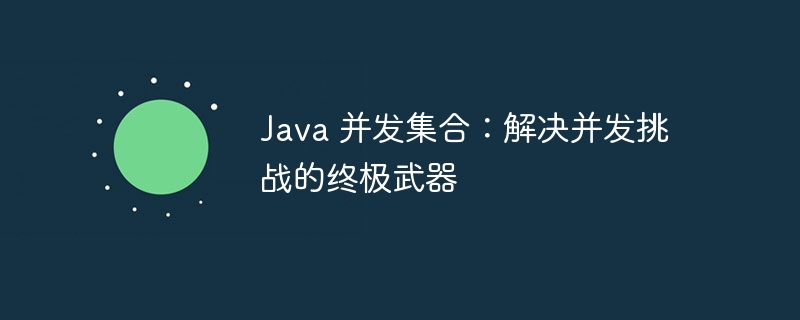

After unremitting efforts, PHP editor Baicao finally compiled an ultimate collection of weapons about Java concurrent programming for everyone. In today's software development field, multi-threaded programming has become an essential skill. However, the various problems caused by concurrent programming cannot be ignored. In this article, we will explain in detail the challenges of concurrent programming in Java and provide a series of solutions to help you become an excellent concurrent programming expert. From theory to practice, we will comprehensively analyze various skills and experiences in concurrent programming, so that you can truly master the ultimate weapon of concurrent programming. Whether you are a beginner or an experienced developer, this article can help you become invincible on the battlefield of concurrent programming. Let’s start this concurrent programming challenge together!
Common concurrent collections
Java Concurrent CollectionsThe framework contains multiple common collection classes, each of which provides different features and uses:
Best practices for using concurrent collections
To use concurrent collections effectively, follow these best practices:
Limitations of concurrent collections
Although concurrent collections provide powerful concurrency support, there are still some limitations to consider:
in conclusion
Java concurrent collections are a powerful tool for solving multi-threaded concurrency challenges. Their thread safety, high performance, and ease of use make them ideal for building scalable and highly available multi-threaded applications. However, you need to understand the limitations when using concurrent collections and follow best practices to ensure correctness and performance.
The above is the detailed content of Java Concurrent Collections: The Ultimate Weapon for Solving Concurrency Challenges. For more information, please follow other related articles on the PHP Chinese website!




